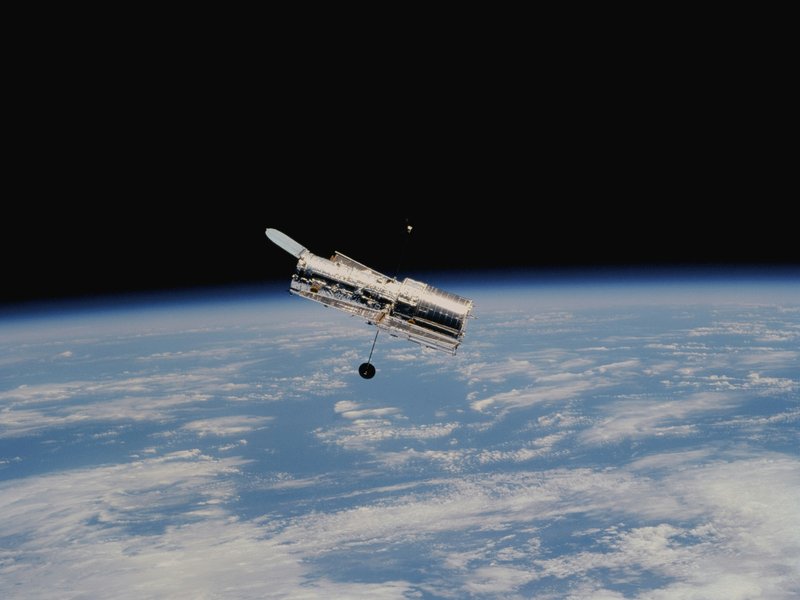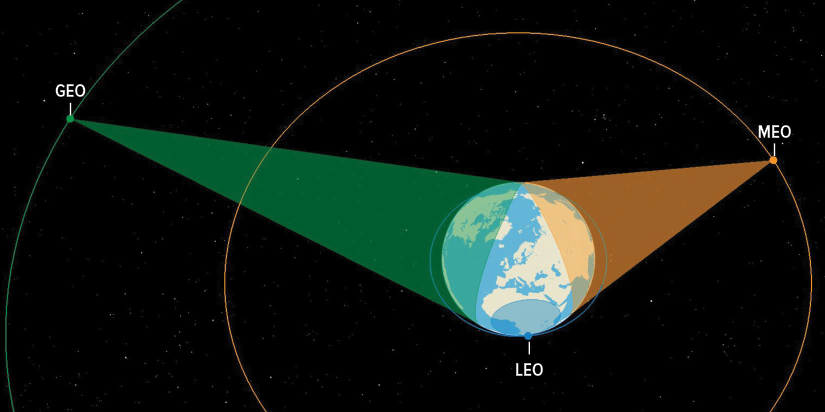LEO Policy Working Group Calls for Modernization of Satellite Regulations Amid Challenges in Low Earth Orbit
Press Release

NASA via Unsplash
Oct. 30, 2025
WASHINGTON—The LEO Policy Working Group today released a comprehensive report urging U.S. policymakers to modernize regulations governing Low Earth Orbit (LEO) to ensure sustainable growth, fair competition, and effective deployment of next-generation satellite connectivity. The report, titled "Low Earth Orbit Satellites: Policies to Promote Spectrum Sharing, Foster Competition, and Close Digital Divides," identifies three critical policy areas requiring action as LEO becomes increasingly congested with large communication constellations.
The report emphasizes that while LEO technology promises increases in network capacity and ubiquitous service, its full potential is currently hamstrung by outdated, burdensome, and overly restrictive licensing systems; this includes the regulatory frameworks they operate under.
Over the past year, New America’s Wireless Future program and the International Center for Law & Economics (ICLE) have co-chaired a series of discussions bringing together industry, public policy, academic, and regulatory experts to explore the challenges facing the development and deployment of LEO satellites for universal connectivity. The LEO Policy Working Group, created as a result of these efforts, has identified three central themes that must guide U.S. policy:
- Enabling Effective LEO Spectrum Sharing and Coexistence:The current satellite licensing system is characterized as being "overly slow, bespoke, and burdensome." To realize the full potential of LEO systems, the report recommends a significant shift from bespoke processes to clear, uniform ex ante rules with targeted ex postenforcement. It also advocates for a robust spectrum pipeline that allocates far greater availability for satellite use, underpinned by modernized interference protection frameworks.
- Fostering a Sustainable Competitive Environment: The report analyzes the LEO market as a hybrid arena where statecraft and economics interact, noting the influence of state-backed constellations and heavy subsidies that skew the competitive field. While competition is real and intensifying, market consolidation is likely. The Working Group urges policymakers to remain alert to potential anticompetitive conduct, specifically monitoring vertical integration, tying, and merger activity, while recognizing that efficiency-enhancing integration can also be pro-consumer.
- Optimizing LEO Connectivity’s Role in Closing the Digital Divide: LEO satellite service can now deliver high-speed broadband (100/20 Mbps) directly to homes, making it a powerful tool for achieving universal service goals. The report finds LEO service is uniquely appropriate for otherwise hard-to-reach locations (due to its minimal ground infrastructure). Policymakers must address existing barriers and create a regulatory environment that effectively incorporates LEO systems into ongoing and future federal broadband subsidy programs to help them effectively serve unserved and underserved households.
Kristian Stout, Director of Innovation Policy at ICLE shared the following: “The promise of next-generation LEO connectivity remains constrained by outdated assumptions in the satellite industry. Spectrum policies are still shaped by overly restrictive regulatory frameworks long past due for modernization. At the same time, competition law must recognize that this remains a nascent market—one where even well-capitalized firms face extraordinary investment risk and uncertain returns. As telecom authorities pursue universal connectivity, satellites have become a central element of that policy mix. The barriers and opportunities identified in our report highlight the need for policymakers to move beyond slow, legacy regimes toward more adaptive, forward-looking regulation.”
Michael Calabrese, Director of Wireless Future at New America, added: “LEO satellite constellations have the potential to fill remaining broadband coverage gaps and to enable seamless connectivity for both consumers and enterprise. To achieve this, regulators will need to promote intensive spectrum sharing and streamline the regulatory process. The LEO Policy Working Group report provides a roadmap in relation to abundant spectrum capacity, enhanced competition, and closing digital divides.”

This figure shows the orbital ranges of three different kinds of satellites: Geostationary Earth Orbit (GEO), Medium Earth Orbit (MEO), and Low Earth Orbit (LEO). LEO satellites operate in the closest range to Earth, 300–2000km above the planet’s surface.
The LEO Policy Working Group calls on government agencies, including the FCC and NTIA, to utilize the report’s findings to drive immediate and effective regulatory change.
Signers include:
- Michael Calabrese (co-chair), Director of Wireless Future at New America
- Kristian Stout (co-chair), Director of Innovation Policy, International Center for Law & Economics (ICLE)
- Jeffrey Carlisle, Managing Member, Lerman Senter PLLC, Former Chief of the FCC’s Wireline Competition Bureau
- Patricia Cooper, Founder, Constellation Advisory LLC, Former President, Satellite Industry Association
- Harold Feld, Senior Vice President, Public Knowledge
- Paul Garnett, Chief Executive Officer, Vernonburg Group, Former Assistant Vice President, Regulatory Affairs, at CTIA-The Wireless Association
- Mark Jamison, Gerald Gunter Professor, University of Florida, and Director, Public Utility Research Center (PURC) and Digital Markets Initiative
- Joe Kane, Director, Broadband and Spectrum Policy, Information Technology and Innovation Foundation
- J. Armand Musey, President and Founder, Summit Ridge Group, LLC
- Michael O’Rielly, Strategic Advisor and Advocate, MPORielly Consulting LLC, Former FCC Commissioner
- Jon Peha, Professor, Electrical Engineering and Public Policy, Carnegie Mellon University, Former Chief Technologist at the Federal Communications Commission and Assistant Director, White House Office of Science & Technology Policy
- Ruth Pritchard-Kelly, Principal, RPK Advisors, Former Senior Advisor for Regulatory and Space Policy, OneWeb
- David Reed, Scholar in Residence, University of Colorado Boulder, Former Telecommunications Policy Analyst at the Office of Plans and Policy, FCC
- Nicol Turner Lee, Director, Center for Technology Innovation and Senior Fellow of Governance Studies, Brookings Institution
About the LEO Policy Working Group
The LEO Policy Working Group is an independent body dedicated to providing forward-looking, data-driven analysis and policy recommendations to ensure the successful and sustainable deployment of next-generation Low Earth Orbit satellite systems.
About New America
New America is dedicated to renewing the promise of America, bringing us closer to our nation’s highest ideals. We’re a different kind of think tank: one dedicated to public problem solving. Our team of visionary researchers, changemakers, technologists, and storytellers study and seize the opportunities presented by dramatic social and technological change. We search for powerful ideas, wherever they are, and collaborate with civic innovators around the country to develop evidence-based solutions. To learn more, please visit us online at www.newamerica.org or follow us on X @NewAmerica and Bluesky @newamerica.org.
About ICLE
The International Center for Law & Economics is a nonprofit, nonpartisan research center working with a roster of more than one-hundred academic affiliates and research centers from around the globe. ICLE scholars promote the use of law and economics methodologies to inform public policy debates.